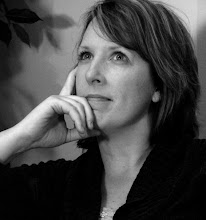Saturday, March 31, 2007
Quizzes Are No Joking Matter...Or Are They?
Students hate quizzes; as an instructor who frequently gives quizzes to test students' knowledge of a subject, determine whether they're reading the material, or just focus them on important information, I've come to accept that fact. But how often do students think about where the word quiz came from in the first place? A study of the word reveals two different ideas--a quiz as either entertainment or interrogation.
The origin of the word appears to be unknown or obscure. However, the Morris Dictionary of Word and Phrase Origins provides an anecdotal discussion of the word's origin:
"It seems that late in the eighteenth century one James Daly, the manager of a theater in Dublin . . . made a very rash wager. He bet that he could introduce a word into the language overnight. . . . He hired all the urchins in Dublintown, equipped them with pieces of chalk, and sent them out into the night with instructions to chalk a single word on every wall and billboard in the city. The word was quiz. And, as a result of Daly's enterprise, it was on the lips of all Dublin in the morning."
What makes this anecdote plausible is that it coincides with one of the earliest meanings of quiz--that of a practical joke. However, since there is no written evidence at the time this event supposedly occurred, it is unlikely that it is anything more than a tall tale told over a pint of ale.
The Oxford English Dictionary (OED) traces the first use of quiz to 1782: "He's a droll quiz, and I rather like him." At that time, the word mean an "eccentric person," (but by 1798, the term had expanded its meaning to include "an odd-looking thing," as in "[w]here did you get that quiz of a hat?" (OED). Both meanings are considered obsolete today.
The OED then notes a reference in 1833 to an obscure meaning of quiz--a toy, called a bandalore in French and a quiz in English. The toy may have been odd-looking--hence the name quiz, but this idea is purely conjecture. This is, however, the first time we get a sense of quiz as a game or form of entertainment. The word later comes to mean "a practical joke; a hoax, a piece of humbug, banter or ridicule; a jest or witticism" (OED). In the United States, a quiz becomes "an act of quizzing or questioning; specifically an oral exam of a student or class by a teacher. . . . A set of questions to be answered as entertainment (my emphasis)" (OED). The latter definition reminds us more of the entertaining quizzes in poular magazines that ask readers to rate their "love quotient" or some such nonsense than it reminds us of the more traditional quizzes given to assess a students' knowledge of a subject.
So where does quiz as a kind of knowledge test come into play? John Ayto's Dictionary of Word Origins suggests that the verb quiz "later came to be used for 'look at mockingly or questioningly through a monocle,' and it may be that this led on (perhaps helped by associations with inquisitive or Latin quis? 'who?, what?') to the sense 'interrogate.'" The American Heritage Dictionary reinforces this theory, indicating that quiz might be associated with question, inquisitive, or the English dialect verb quiset, "to question." However, when we think of an interrogation, we think of a formal questioning, like police questioning a suspect, or a cruel questioning, like a war enemy extracting information through torture. (Much like my crotchety-but-beloved high school government teacher, Mr. Agosta, who called our class Q&A sessions interrogation. If we replied "I don't know" in answer to one of his inquiries, we were reprimanded for not reading or studying the materials. If we replied "I forgot," his response was always "Senility is not indigenous to youth.") What's ironic here is that the questioning--the quiz--started off in fun, if we go back to the earlier definitions of quiz. And students, of course, do not seem to see quizzes as fun!
So it is through the idea of questioning in fun that we get to quiz as an examination, the definition we are most familiar with today. Of course, using today's connotation of an impromptu test, many students might agree that, hearkening back to one of the original meanings of the word, today's quizzes are indeed practical jokes, or rather are no joking matter!
The origin of the word appears to be unknown or obscure. However, the Morris Dictionary of Word and Phrase Origins provides an anecdotal discussion of the word's origin:
"It seems that late in the eighteenth century one James Daly, the manager of a theater in Dublin . . . made a very rash wager. He bet that he could introduce a word into the language overnight. . . . He hired all the urchins in Dublintown, equipped them with pieces of chalk, and sent them out into the night with instructions to chalk a single word on every wall and billboard in the city. The word was quiz. And, as a result of Daly's enterprise, it was on the lips of all Dublin in the morning."
What makes this anecdote plausible is that it coincides with one of the earliest meanings of quiz--that of a practical joke. However, since there is no written evidence at the time this event supposedly occurred, it is unlikely that it is anything more than a tall tale told over a pint of ale.
The Oxford English Dictionary (OED) traces the first use of quiz to 1782: "He's a droll quiz, and I rather like him." At that time, the word mean an "eccentric person," (but by 1798, the term had expanded its meaning to include "an odd-looking thing," as in "[w]here did you get that quiz of a hat?" (OED). Both meanings are considered obsolete today.
The OED then notes a reference in 1833 to an obscure meaning of quiz--a toy, called a bandalore in French and a quiz in English. The toy may have been odd-looking--hence the name quiz, but this idea is purely conjecture. This is, however, the first time we get a sense of quiz as a game or form of entertainment. The word later comes to mean "a practical joke; a hoax, a piece of humbug, banter or ridicule; a jest or witticism" (OED). In the United States, a quiz becomes "an act of quizzing or questioning; specifically an oral exam of a student or class by a teacher. . . . A set of questions to be answered as entertainment (my emphasis)" (OED). The latter definition reminds us more of the entertaining quizzes in poular magazines that ask readers to rate their "love quotient" or some such nonsense than it reminds us of the more traditional quizzes given to assess a students' knowledge of a subject.
So where does quiz as a kind of knowledge test come into play? John Ayto's Dictionary of Word Origins suggests that the verb quiz "later came to be used for 'look at mockingly or questioningly through a monocle,' and it may be that this led on (perhaps helped by associations with inquisitive or Latin quis? 'who?, what?') to the sense 'interrogate.'" The American Heritage Dictionary reinforces this theory, indicating that quiz might be associated with question, inquisitive, or the English dialect verb quiset, "to question." However, when we think of an interrogation, we think of a formal questioning, like police questioning a suspect, or a cruel questioning, like a war enemy extracting information through torture. (Much like my crotchety-but-beloved high school government teacher, Mr. Agosta, who called our class Q&A sessions interrogation. If we replied "I don't know" in answer to one of his inquiries, we were reprimanded for not reading or studying the materials. If we replied "I forgot," his response was always "Senility is not indigenous to youth.") What's ironic here is that the questioning--the quiz--started off in fun, if we go back to the earlier definitions of quiz. And students, of course, do not seem to see quizzes as fun!
So it is through the idea of questioning in fun that we get to quiz as an examination, the definition we are most familiar with today. Of course, using today's connotation of an impromptu test, many students might agree that, hearkening back to one of the original meanings of the word, today's quizzes are indeed practical jokes, or rather are no joking matter!
Tuesday, March 13, 2007
Are You Phobophobic?
I stumbled across the word phobophobia today--fear of phobias. The first phobia I remember learning about was hydrophobia--fear of water, as well as a term used for rabies (since rabies creates a fear of water in the human or animal who has the condition)--thanks to reading Old Yeller. Nobody can accuse me of having triskaidekaphobia (an irrational fear of the number 13), since my birthday occasionally falls on Friday the 13th. So I joyfully consider 13 my lucky number.
Thinking about phobias (meaning "irrational fears") led me to wonder about other kinds of phobias people might have, so I searched for "phobias" and came up with this site: The Phobia List . Here are a few of my favorite phobias from this site:
Thinking about phobias (meaning "irrational fears") led me to wonder about other kinds of phobias people might have, so I searched for "phobias" and came up with this site: The Phobia List . Here are a few of my favorite phobias from this site:
- Alliumphobia - Fear of garlic. (I guess this phobia is genetic for vampires.)
- Amathophobia - Fear of dust. (I can honestly say this is a phobia I do NOT have--as anyone who has seen the dust bunnies in my house can attest to.)
- Genuphobia - Fear of knees. (What?)
- Papyrophobia - Fear of paper. (I can understand this one. I once got a papercut on my eyeball--don't ask.)
- Thaasophobia - Fear of sitting. (I can't imagine going through life only standing or reclining.)
- Vestiphobia - Fear of clothing. (My cat exhibits signs of this phobia. She absolutely refuses to be dressed up. I have shown her pictures of the three little kittens who lost their mittens and cried as a result, but she remains unconvinced that clothing is necessary for felines.)
- Xenoglossophobia - Fear of foreign languages.
- Zemmiphobia - Fear of the great mole rat. (Sounds like the premise for a bad sci-fi flick.)
If you enjoyed The Phobia List, try The Phobias or About.com's Phobias List. If you are looking for more serious sites, visit Mayo Clinic's Phobias fact sheet or the American Psychiatric Association's Phobias site.
If I suffer from any phobia, it's agoraphobia--fear of being in crowded, public places like markets. I don't have a problem in most crowds, but if the crowds get really close, I feel like I need to scream. So...what's your phobia?
Subscribe to:
Comments (Atom)

